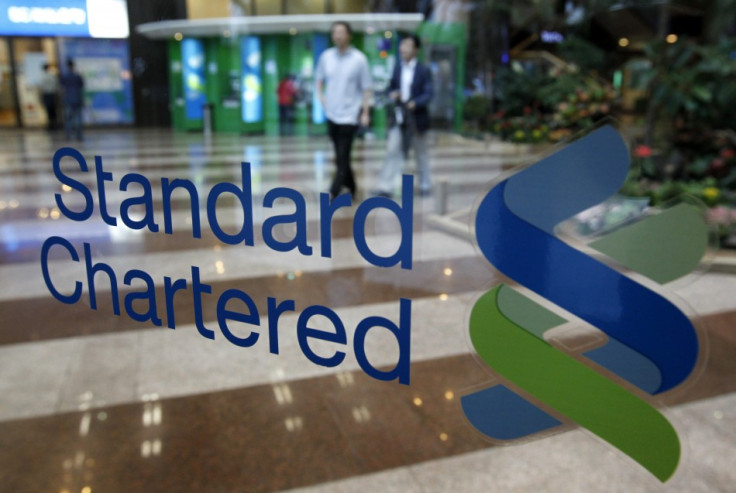Standard Chartered Knocked By $1bn Korean Business Hit

Standard Chartered unveiled a double digit percentage slump in pre-tax profits after the emerging markets bank took a $1bn hit on the value of its Korean business.
According to the group's first half year results, the London-based bank said profits tumbled by nearly 16% year-on-year, due to a sizeable writedown from its Korean arm that has had trouble since it bought First Bank in 2005 for $3.3bn (£2.1bn, €2.5bn).
"We cannot escape the realities of the Korean context, but we are determined to improve productivity and return on capital," Chief Executive Peter Sands said in a statement.
Standard Chartered, which makes more than 90% of its profits in Asia, Africa, and the Middle East, said Korea remains its most difficult market and that it was writing down the value of the business.
However, the bank had warned the markets in June that it would, more aggressively, restructure the Asian country arm.
Standard Chartered's chief financial officer tried to calm market participants by stating that the bank expects to meet the $7.9bn consensus forecast for 2013 pre-tax profits, excluding the Korean writedown.
Richard Meddings added that the hit from the value of the Korean business reflects the reality of a tough market and a slump in return on equity across the industry.
First Half Results
Standard Chartered reported a pre-tax profit of $3.3bn for the six months to the end of June, down from $3.9bn a year ago.
Excluding the Korean arm hit, profit rose 4% to over $4bn. Operating income also rose, by the same percentage, to nearly $10bn as the bank saw 17 markets with income growth of at least 10%.
"These results demonstrate the diversity and resilience of our business. Despite a difficult external environment, we continue to support our clients' growth aspirations," said the Chairman of Standard Chartered Sir John Peace.
"We have a strong balance sheet and ample liquidity. We have entered the second half of the year with good momentum and the Board remains confident for the long term."
The bank confirmed that while the economic environment has "made it a challenging six months", the fundamentals across Asia, Africa and the Middle East "remain good".
"Our income is well diversified across our businesses, markets and products and we continue to manage costs tightly whilst continuing to invest selectively, targeting cost growth broadly in line with income," it added.
© Copyright IBTimes 2025. All rights reserved.






















